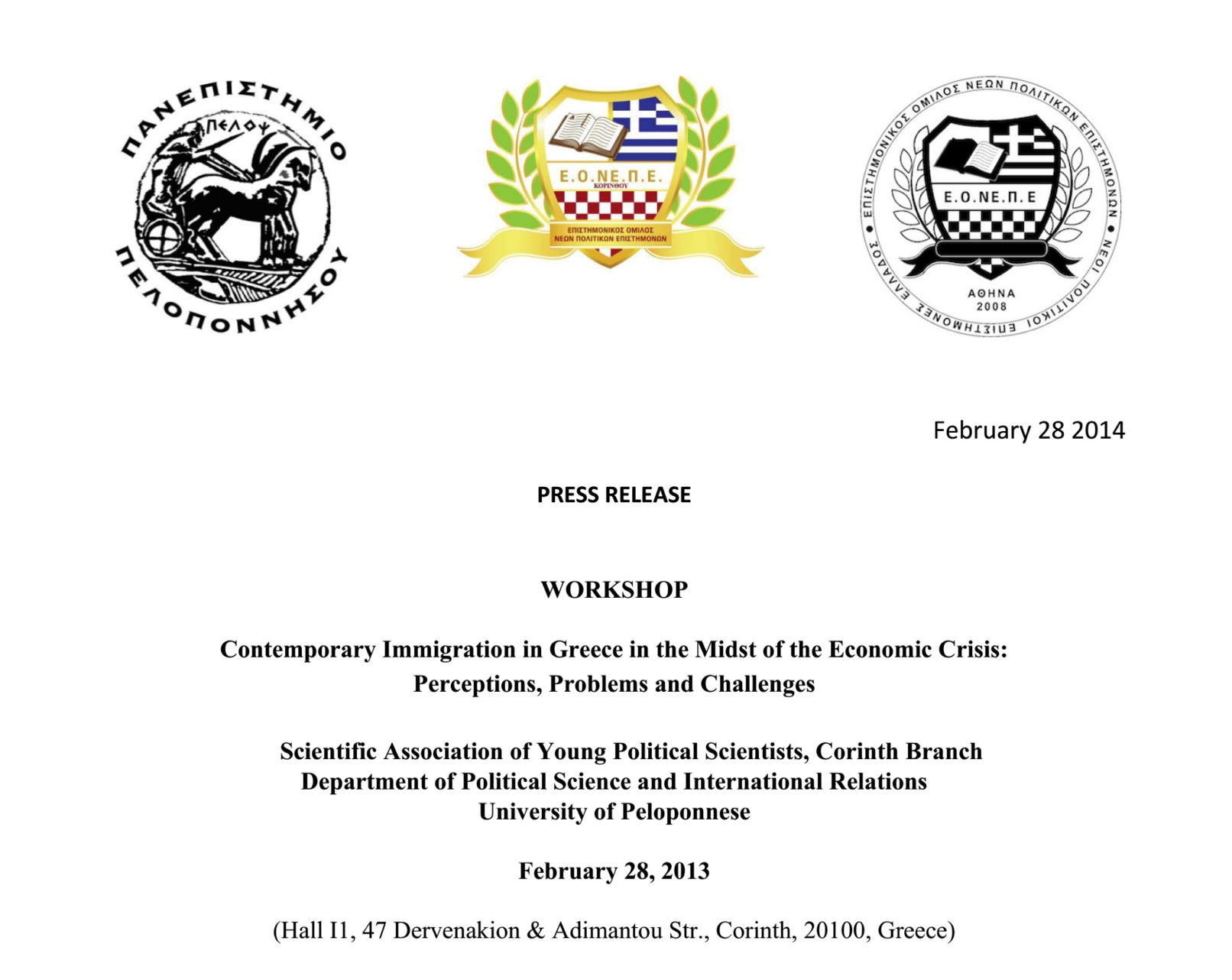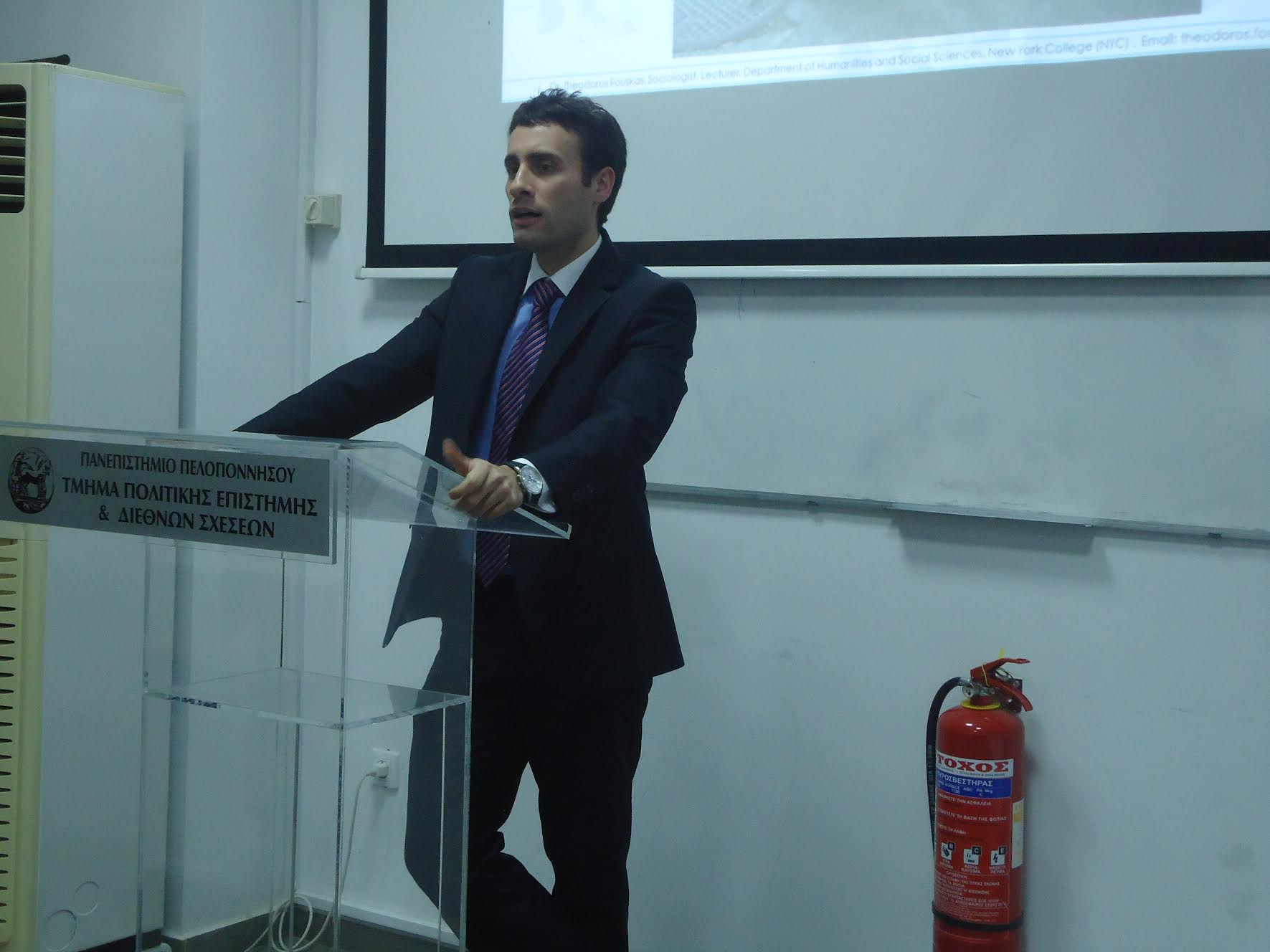Workshops that debate and challenge immigration issues in economically hard-hit countries like Greece are never too many. One of these took place on Friday at the University of Peloponnese and was organized by the Scientific Association of Young Political Scientists.
According to a statement:
The issue of immigration has become a major national issue and is treated as such by Greek immigration policy. Due to its geographical position, Greece has become the most accessible initial stopover – otherwise known as the “gateway to the European Union” – for international immigration and refugees flows, whose final destination is West or North European countries; and due to the magnitude of the problem, it is regarded as not a Greek, but a European one which demands a European solution.
One of the biggest challenges of immigration management is that it is now one of the top priorities for both Greece and the EU, according to Dr. Theodoros Fouskas, who was responsible for the workshop’s scientific organization. He is a sociologist and lecturer of the Department of Humanities and Social Sciences, New York College (NYC).
Greece. “Since Greece deals with 90% of illegal immigration flows to the EU, European aid, assistance and solidarity are imperative,” he said. “But after twenty-five years of huge illegal migration flows, what should be taken into account are the international ramifications that the migratory phenomenon has caused in the 21st century.”
Dr. Fouskas focused his talk on the impact of international labor migration, especially low-status work by Nigerian migrants,* who are the object of his latest research. Low-wage Nigerian migrants in Greece are mainly employed in the service industry, which include manual labor jobs, farming, construction, crafts, housework, cleaning services, prostitution and others.
“What is currently observed is a mobile, temporary workforce, which is occupied in casual, non-permanent, low-prestige jobs,” he said. “[Nigerian] immigrants of both genders are exposed to all forms of exploitation, to flexible working ours and unsettled, low-level and unstable lifestyle.”
Dr Theodoros Fouskas speaking at the workshop on perceptions, problems and challenges of immigration in Greece.
According to Dr Fouskas, the life of low-wage immigrants in Greece is more than challenging under the present circumstances.
“They are disconnected, detached from the past, with no memory of collectivization or personal efforts and claims,” he said. “Nigerian immigrants’ work is characterized by exhausting working hours, exceptionally low wages, appalling working conditions, non-permanent employment with frequent employer changes, no National Health benefits, unstable residence status, fear of arrest and deportation…”
Other speakers that took part in the workshop were Pantelis Sklias, Symeon Sidiropoulos, George Hilal, Panagiota Theodosi, Konstantinos Kazanas and Jamil M. Sayed.
* Fouskas, Theodoros (201-) Nigerian Immigrants in Greece: Low-Status Work, Community, and Decollectivization, Research Monograph under contract, and Fouskas, Theodoros (2014) “‘Community’ found or lost in the city? The consequences of low-status work on association participation of Nigerian immigrant workers in Athens”, in: Fouskas, Theodoros and Vassileios, Tsevrenis (2014) (Eds.), Contemporary Immigration in Greece: A Sourcebook. Athens: European Public Law Organization (EPLO) (forthcoming 2014). Foudkas, Theodoros (2013) “Los-Status Work Consequences on Immigrant Workers’ Organization”, International Review of Sociology, Volume 23, Issue 3, 2013 pp. 671-698.


